第125章
"It is strange," he said at last; "instincts which we do not understand form the motive-power of most of our life's actions, and yet we refuse to admit them as evidence of any external truth. I suppose it is because we MUST act somehow, rightly or wrongly; and there are a great many things which we need not believe unless we choose. As for this old lady, she lived long--long enough, like most of us, to do evil; unlike most of us, long enough to witness some of the results of that evil. To say that, is to say that the last years of her life must have been weighted heavily enough with tragic thought."
I gave a little shudder of repulsion.
"That is a depressing view of life, Alan," I said. "Does our peace of mind depend only upon death coming early enough to hide from us the truth? And, after all, can it? Our spirits do not die. From another world they may witness the fruits of our lives in this one."
"If they do," he answered with sudden violence, "it is absurd to doubt the existence of a purgatory. There must in such a case be a terrible one in store for the best among us."
I was silent. The shadow that lay on his soul did not penetrate to mine, but it hung round me nevertheless, a cloud which I felt powerless to disperse.
After a moment he went on,--"Provided that they are distant enough, how little, after all, do we think of the results of our actions!
There are few men who would deliberately instill into a child a love of drink, or wilfully deprive him of his reason; and yet a man with drunkenness or madness in his blood thinks nothing of bringing children into the world tainted as deeply with the curse as if he had inoculated them with it directly. There is no responsibility so completely ignored as this one of marriage and fatherhood, and yet how heavy it is and far-reaching."
"Well," I said, smiling, "let us console ourselves with the thought that we are not all lunatics and drunkards."
"No," he answered; "but there are other evils besides these, moral taints as well as physical, curses which have their roots in worlds beyond our own,--sins of the fathers which are visited upon the children."
He had lost all violence and bitterness of tone now; but the weary dejection which had taken their place communicated itself to my spirit with more subtle power than his previous mood had owned.
"That is why," he went on, and his manner seemed to give more purpose to his speech than hitherto,--"that is why, so far as I am concerned, I mean to shirk the responsibility and remain unmarried."
I was hardly surprised at his words. I felt that I had expected them, but their utterance seemed to intensify the gloom which rested upon us. Alan was the first to arouse himself from its influence.
"After all," he said, turning round to me and speaking lightly, "without looking so far and so deep, I think my resolve is a prudent one. Above all things, let us take life easily, and you know what St. Paul says about 'trouble in the flesh,'--a remark which I am sure is specially applicable to briefless barristers, even though possessed of a modest competence of their own. Perhaps one of these days, when I am a fat old judge, I shall give my cook a chance if she is satisfactory in her clear soups; but till then I shall expect you, Evie, to work me one pair of carpet-slippers per annum, as tribute due to a bachelor cousin."
I don't quite know what I answered,--my heart was heavy and aching,--but I tried with true feminine docility to follow the lead he had set me. He continued for some time in the same vein; but as we approached the house the effort seemed to become too much for him, and we relapsed again into silence.
This time I was the first to break it. "I suppose," I said, drearily, "all those horrid people will have come by now."
"Horrid people," he repeated, with rather an uncertain laugh, and through the darkness I saw his figure bend forward as he stretched out his hand to caress my horse's neck. "Why, Evie, I thought you were pining for gayety, and that it was, in fact, for the purpose of meeting these 'horrid people' that you came here."
"Yes, I know," I said, wistfully; "but somehow the last week has been so pleasant that I cannot believe that anything will ever be quite so nice again."
We had arrived at the house as I spoke, and the groom was standing at our horses' heads. Alan got off and came round to help me to dismount; but instead of putting up his arm as usual as a support for me to spring from, he laid his hand on mine. "Yes, Evie," he said, "it has been indeed a pleasant time. God bless you for it."
For an instant he stood there looking up at me, his face full in the light which streamed from the open door, his gray eyes shining with a radiance which was not wholly from thence. Then he straightened his arm, I sprang to the ground, and as if to preclude the possibility of any answer on my part, he turned sharply on his heel, and began giving some orders to the groom. I went on alone into the house, feeling, I knew not and cared not to know why, that the gloom had fled from my spirit, and that the last ride had not after all been such a melancholy failure as it had bid fair at one time to become.